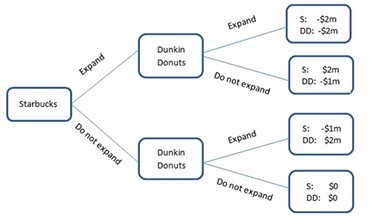In his book Power and Prosperity, the economist Mancur Olson theorized that a country is better off under a dictator who maintains power for a long period, such as Mobutu, than under a short-term, unstable dictatorship
Olson maintained that, while both are very undesirable forms of government, the former is less disruptive to the economy than the latter.Discuss why this assertion may or may not be true.
Olson contrasted the incentives of long-term tyrants, whom he terms "stationary bandits," with those of "roving bandits"—tyrants whose period in power is limited and unstable.Dictators whose hold on power is tenuous and likely to be short-lived have an incentive to plunder as much as possible from the economy as quickly as possible, leaving the country in economic chaos and destitution.
Tyrants who manage to maintain power for an extended period often refrain fromexploiting their population to the extent that they could.Although corrupt and certainly willing to exploit his people for personal gain, a dictator like Mobutu would have been less inclined to extract so much from the economy that it could no longer function.If the economy ceased to function, Mobutu'sability to enrich himself and his cronies would have thus come to an end, and future gains would not have been possible.Hence, as economically dysfunctional as dictatorships usually are, they are less so than the anarchy that normally accompanies brief, unstable regimes.
A-head: CONFLICT OF INTEREST AND POLITICAL ECONOMY
Concept: Monarchy, Dictatorship and Democracy
You might also like to view...
 This figure displays the choices being made by two coffee shops: Starbucks and Dunkin Donuts. Both companies are trying to decide whether or not to expand in an area. The area can handle only one of them expanding, and whoever expands will cause the other to lose some business. If they both expand, the market will be saturated, and neither company will do well. The payoffs are the additional profits (or losses) they will earn.The game in the figure shown is a version of:
This figure displays the choices being made by two coffee shops: Starbucks and Dunkin Donuts. Both companies are trying to decide whether or not to expand in an area. The area can handle only one of them expanding, and whoever expands will cause the other to lose some business. If they both expand, the market will be saturated, and neither company will do well. The payoffs are the additional profits (or losses) they will earn.The game in the figure shown is a version of:
A. the first-mover advantage. B. the prisoner's dilemma. C. a sequential game. D. a repeated game.
A firm's revenue from selling its product minus the cost of inputs purchased from other firms is called:
A. production costs. B. profits. C. investment. D. value added.
The government has bailed out homeowners who are in danger of foreclosure. Furthermore, future homeowners may deduce that the government will again bail them out in the case of future economic turmoil. The government inadvertently has created what is known as:
A. moral hazard. B. herding. C. deleveraging. D. the law of diminishing control.
Economists focus on the effect of changes in income and prices in influencing actual consumer purchases.
Answer the following statement true (T) or false (F)